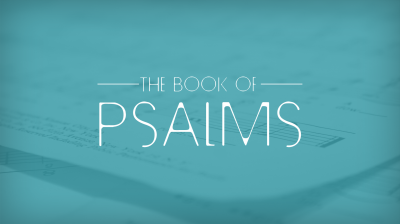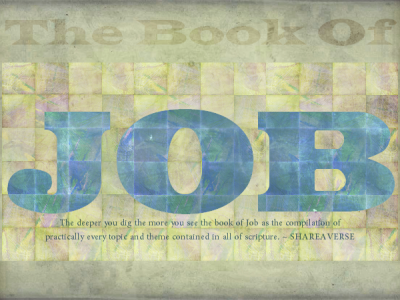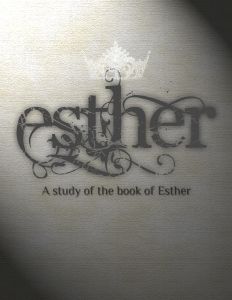Psalms
By Pastor Frank Gallegos, Sr. on July 13, 2015 in
Church News

Book of Psalms
Author: The brief descriptions that introduce the psalms have David listed as author in 73 instances. David’s personality and identity are clearly stamped on many of these psalms. While it is clear that David wrote many of the individual psalms, he is definitely not the author of the entire collection. Two of the psalms (72) and (127) are attributed to Solomon, David’s son and successor. Psalm 90 is a prayer assigned to Moses. Another group of 12 psalms (50) and (73—83) is ascribed to the family of Asaph. The sons of Korah wrote 11 psalms (42, 44-49, 84-85,87-88). Psalm 88 is attributed to Heman, while (89) is assigned to Ethan the Ezrahite. With the exception of Solomon and Moses, all these additional authors were priests or Levites who were responsible for providing music for sanctuary worship during David’s reign. Fifty of the psalms designate no specific person as author.
Date of Writing: A careful examination of the authorship question, as well as the subject matter covered by the psalms themselves, reveals that they span a period of many centuries. The oldest psalm in the collection is probably the prayer of Moses (90), a reflection on the frailty of man as compared to the eternity of God. The latest psalm is probably (137), a song of lament clearly written during the days when the Hebrews were being held captive by the Babylonians, from about 586 to 538 B.C.
It is clear that the 150 individual psalms were written by many different people across a period of a thousand years in Israel’s history. They must have been compiled and put together in their present form by some unknown editor shortly after the captivity ended about 537 B.C.
Purpose of Writing: The Book of Psalms is the longest book in the Bible, with 150 individual psalms. It is also one of the most diverse, since the psalms deal with such subjects as God and His creation, war, worship, wisdom, sin and evil, judgment, justice, and the coming of the Messiah.
Key Verses: Psalm 19:1 “The heavens declare the glory of God; the skies proclaim the work of his hands.”
Psalm 22:16-19, “Dogs have surrounded me; a band of evil men has encircled me, they have pierced my hands and my feet. I can count all my bones; people stare and gloat over me. They divide my garments among them and cast lots for my clothing.”
Psalm 23:1, “The LORD is my shepherd, I shall not be in want.”
Psalm 29:1-2, “Ascribe to the LORD, O mighty ones, ascribe to the LORD glory and strength. Ascribe to the LORD the glory due his name; worship the LORD in the splendor of his holiness.”
Psalm 51:10, “Create in me a pure heart, O God, and renew a steadfast spirit within me.”
Psalm 119:1-2, “Blessed are they whose ways are blameless, who walk according to the law of the LORD. Blessed are they who keep his statutes and seek him with all their heart.”
Brief Summary: The Book of Psalms is a collection of prayers, poems, and hymns that focus the worshiper’s thoughts on God in praise and adoration. Parts of this book were used as a hymnal in the worship services of ancient Israel. The musical heritage of the psalms is demonstrated by its title. It comes from a Greek word which means “a song sung to the accompaniment of a musical instrument.”
Foreshadowings: God’s provision of a Savior for His people is a recurring theme in the Psalms. Prophetic pictures of the Messiah are seen in numerous psalms. Psalm 2:1-12 portrays the Messiah’s triumph and kingdom. Psalm 16:8-11 foreshadows His death and resurrection. Psalm 22 shows us the suffering Savior on the cross and presents detailed prophecies of the crucifixion, all of which were fulfilled perfectly. The glories of the Messiah and His bride are on exhibit in Psalm 45:6-7, while Psalms 72:6-17, 89:3-37, 110:1-7 and 132:12-18 present the glory and universality of His reign.
Practical Application: One of the results of being filled with the Spirit or the word of Christ is singing. The psalms are the “songbook” of the early church that reflected the new truth in Christ.
God is the same Lord in all the psalms. But we respond to Him in different ways, according to the specific circumstances of our lives. What a marvelous God we worship, the psalmist declares, One who is high and lifted up beyond our human experiences but also one who is close enough to touch and who walks beside us along life’s way.
We can bring all our feelings to God—no matter how negative or complaining they may be—and we can rest assured that He will hear and understand. The psalmist teaches us that the most profound prayer of all is a cry for help as we find ourselves overwhelmed by the problems of life.
Read more: http://www.gotquestions.org/Book-of-Psalms.html#ixzz3fnSRXurx
Job
By Pastor Frank Gallegos, Sr. on July 12, 2015 in
Church News

Book of Job
Author:The Book of Job does not specifically name its author. The most likely candidates are Job, Elihu, Moses and Solomon.
Date of Writing:The date of the authorship of the Book of Job would be determined by the author of the Book of Job. If Moses was the author, the date would be around 1440 B.C. If Solomon was the author, the date would be around 950 B.C. Because we don’t know the author, we can’t know the date of writing.
Purpose of Writing:The Book of Job helps us to understand the following: Satan cannot bring financial and physical destruction upon us unless it is by God’s permission. God has power over what Satan can and cannot do. It is beyond our human ability to understand the “why’s” behind all the suffering in the world. The wicked will receive their just dues. We cannot always blame suffering and sin on our lifestyles. Suffering may sometimes be allowed in our lives to purify, test, teach or strengthen the soul. God remains enough, deserves and requests our love and praise in all circumstances of life.
Key Verses:Job 1:1, “In the land of Uz there lived a man whose name was Job. This man was blameless and upright; he feared God and shunned evil.”
Job 1:21, “Naked I came from my mother’s womb, and naked I will depart. The LORD gave and the LORD has taken away; may the name of the LORD be praised.”
Job 38:1-2, “Then the LORD answered Job out of the storm. He said, ‘Who is this that darkens my counsel with words without knowledge?’”
Job 42:5-6, “My ears had heard of you but now my eyes have seen you. Therefore I despise myself and repent in dust and ashes.”
Brief Summary:The book opens with a scene in heaven where Satan comes to accuse Job before God. He insists Job only serves God because God protects him and seeks God’s permission to test Job’s faith and loyalty. God grants His permission, only within certain boundaries. Why do the righteous suffer? This is the question raised after Job loses his family, his wealth, and his health. Job’s three friends Eliphaz, Bildad and Zophar, come to “comfort” him and to discuss his crushing series of tragedies. They insist his suffering is punishment for sin in his life. Job, though, remains devoted to God through all of this and contends that his life has not been one of sin. A fourth man, Elihu, tells Job he needs to humble himself and submit to God’s use of trials to purify his life. Finally, Job questions God Himself and learns valuable lessons about the sovereignty of God and his need to totally trust in the Lord. Job is then restored to health, happiness and prosperity beyond his earlier state.
Foreshadowings:As Job was pondering the cause of his misery, three questions came to his mind, all of which are answered only in our Lord Jesus Christ. These questions occur in chapter 14. First, in verse 4, Job asks, “Who can bring what is pure from the impure? No one!?” Job’s question comes from a heart that recognizes it cannot possibly please God or become justified in His sight. God is holy; we are not. Therefore, a great gulf exists between man and God, caused by sin. But the answer to Job’s anguished question is found in Jesus Christ. He has paid the penalty for our sin and has exchanged it for His righteousness, thereby making us acceptable in God’s sight (Hebrews 10:14;Colossians 1:21-23;2 Corinthians 5:17).
Job’s second question, “But man dies and lies prostrate; Man expires, and where is he?” (vs. 14), is another question about eternity and life and death that is answered only in Christ. With Christ, the answer to ‘where is he?’ is eternal life in heaven. Without Christ, the answer is an eternity in “outer darkness” where there is “weeping and gnashing of teeth” (Matthew 25:30).
Job’s third question, found in verse 14, is “If a man dies, will he live again?” Once again, the answer is found in Christ. We do indeed live again if we are in Him. “When the perishable has been clothed with the imperishable, and the mortal with immortality, then the saying that is written will come true: ‘Death has been swallowed up in victory.’ ‘Where, O death, is your victory? Where, O death, is your sting?’” (1 Corinthians 15:54-55).
Practical Application:The Book of Job reminds us that there is a “cosmic conflict” going on the behind the scenes that we usually know nothing about. Often we wonder why God allows something, and we question or doubt God’s goodness, without seeing the full picture. The Book of Job teaches us to trust God under all circumstances. We must trust God, not only WHEN we do not understand, but BECAUSE we do not understand. The psalmist tells us, “As for God, His way is perfect” (Psalm 18:30). If God’s ways are “perfect,” then we can trust that whatever He does—and whatever He allows—is also perfect. This may not seem possible to us, but our minds are not God’s mind. It is true that we can’t expect to understand His mind perfectly, as He reminds us, “For my thoughts are not your thoughts, neither are your ways my ways, says the LORD. For as the heavens are higher than the earth, so are my ways higher than your ways and my thoughts than your thoughts” (Isaiah 55:8-9). Nevertheless, our responsibility to God is to obey Him, to trust Him and to submit to His will, whether we understand it or not.
Esther
By Pastor Frank Gallegos, Sr. on July 03, 2015 in
Church News

Book of Esther
Author:The Book of Esther does not specifically name its author. The most popular traditions are Mordecai (a major character in the Book of Esther), Ezra and Nehemiah (who would have been familiar with Persian customs).
Date of Writing:The Book of Esther was likely written between 460 and 350 B.C.
Purpose of Writing:The purpose of the Book of Esther is to display the providence of God, especially in regard to His chosen people, Israel. The Book of Esther records the institution of the Feast of Purim and the obligation of its perpetual observation. The Book of Esther was read at the Feast of Purim to commemorate the great deliverance of the Jewish nation brought about by God through Esther. Jews today still read Esther during Purim.
Key Verses:Esther 2:15- Now when the time came for Esther to go to the king, she asked for nothing other than what Hegai, the king’s eunuch who was in charge of the harem, suggested.
Esther 4:14- For if you remain silent at this time, relief and deliverance will arise from another place, but you and your father’s family will perish. And who knows but that you have come to the royal position for such a time as this.
Esther 6:12- Since Mordecai, before whom your downfall has begun, is of Jewish origin, you cannot stand against him - you will surely come to ruin!
Esther 7:3- If I have found favor with you, O king, and if it pleases your majesty, grant me my life - this is my petition, and the life of my people - this is my request.
Brief Summary:The Book of Esther can be divided into three main sections. Chapters 1:1-2:18 – Esther replaces Vashti; 2:19-7:10 – Mordecai overcomes Haman; 8:1-10:3 – Israel survives Haman’s attempt to destroy them. The noble Esther risked her own death as she realized what was at stake. She willingly did what could have been a deadly maneuver and took on the second-in-command of her husband‘s kingdom, Haman. She proved a wise and most worthy opponent, all the while remaining humble and respectful of the position of her husband-king.
Esther’s story is much like the story of Joseph inGenesis 41. Both stories involve foreign monarchs who control the destiny of the Jews. Both accounts show the heroism of Israelite individuals who provide the means for the salvation of their people and nation. The hand of God is evident, in that what appears to be a bad situation is indeed very much under the control of the Almighty God, who ultimately has the good of the people at heart. At the center of this story is the ongoing division between the Jews and the Amalakites, which was recorded to have begun in the Book of Exodus. Haman’s goal is the final effort recorded in the Old Testament period of the complete eradication of the Jews. His plans eventually end up with his own demise, and the elevation of his enemy Mordecai to his own position, as well as the salvation of the Jews.
Feasting is a major theme of this book: there are ten recorded banquets, and many of the events were planned, plotted, or exposed at these banquets. Although the name ofGod is never mentioned in this book, it is apparent that the Jews of Susa sought His intervention when they fasted and prayed for three days (Esther 4:16). In spite of the fact that the law allowing their destruction was written according to the laws of the Medes and Persians, rendering it unchangeable, the way was cleared for their prayers to be answered. Esther risked her life by going not once uninvited before the king but twice, (Esther 4:1-2;8:3). She was not content with the destruction of Haman; she was intent on saving her people. The institution of the Feast of Purim is written and preserved for all to see and is still observed today. God’s chosen people, without any direct mention of His name, were granted a stay of execution through the wisdom and humility of Esther.
Foreshadowings:In Esther, we are given a behind-the-scenes look at the ongoing struggle of Satan against the purposes of God and especially against His promised Messiah. The entrance of Christ into the human race was predicated upon the existence of the Jewish race. Just as Haman plotted against the Jews in order to destroy them, so has Satan set himself against Christ and God’s people. Just as Haman is defeated on the gallows he built for Mordecai, so does Christ use the very weapon that his enemy devised to destroy Him and His spiritual seed. For the cross, by which Satan planned to destroy the Messiah, was the very means through which Christ “having canceled the written code, with its regulations, that was against us and that stood opposed to us; he took it away, nailing it to the cross. And having disarmed the powers and authorities, he made a public spectacle of them, triumphing over them by the cross” (Colossians 2:14-15). Just as Haman was hanged on the gallows he built for Mordecai, so the devil was crushed by the cross he erected to destroy Christ.
Practical Application:The Book of Esther shows the choice we make between seeing the hand of God in our circumstances in life and seeing things as merely coincidence. God is the sovereign Ruler of the universe and we can be assured that His plans will not be moved by the actions of mere evil men. Although His name is not mentioned in the book, His providential care for his people, both individuals and the nation, is evident throughout. For instance, we cannot fail to see the Almighty exerting influence over King Xerxes’s timely insomnia. Through the example of Mordecai and Esther, the silent love language our Father often uses to communicate directly to our spirits is shown in this book.
Esther proved to have a godly and teachable spirit that also showed great strength and willing obedience. Esther’s humility was markedly different from those around her, and this caused her to be elevated into the position of queen. She shows us that remaining respectful and humble, even in difficult if not humanly impossible circumstances, often sets us up to be the vessel of untold blessing for both ourselves and others. We would do well to emulate her godly attitudes in all areas of life, but especially in trials. Not once is there a complaint or bad attitude exposed in the writing. Many times we read she won the “favor” of those around her. Such favor is what ultimately saved her people. We can be granted such favor as we accept even unfair persecution and follow Esther’s example of maintaining a positive attitude, coupled with humility and the determination to lean on God. Who knows but that God put us in such a position, for just such a time as this?
Read more:http://www.gotquestions.org/Book-of-Esther.html#ixzz3el2ATxLV
Page 14 of 19 pages ‹ First < 12 13 14 15 16 > Last ›




